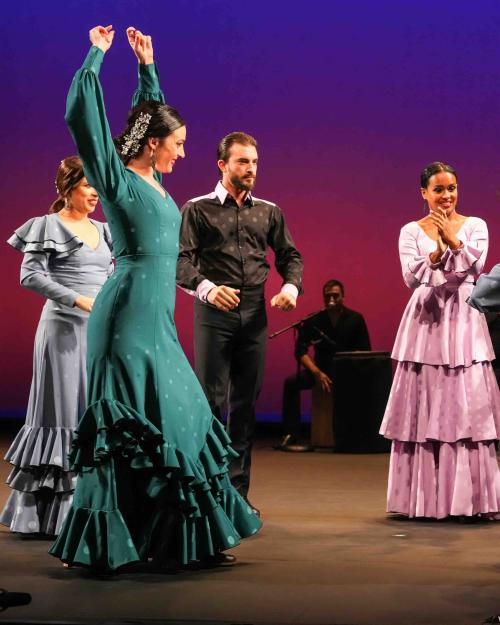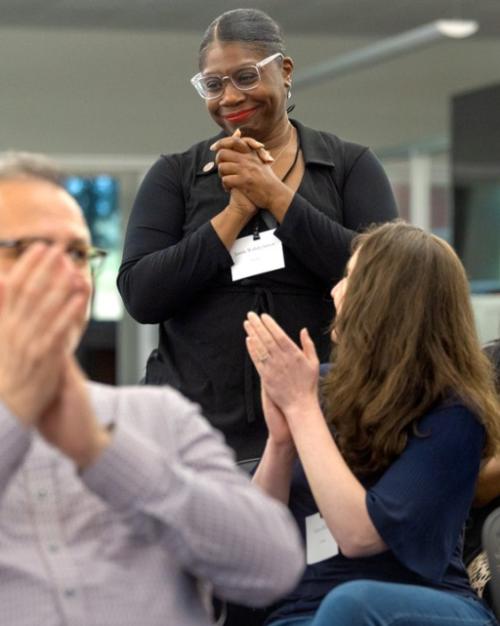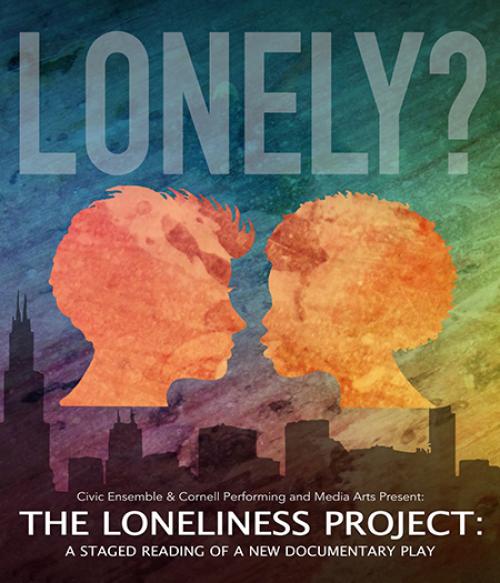The Association of Graduates in Theatre is collaborating with The History Center of Tompkins County and Ithaca’s Civic Ensemble to present a staged reading of “The Loneliness Project” April 19-21.
The documentary was co-written and co-directed by Cornell doctoral candidate Caitlin Kane, along with colleagues Kelli Simpkins, Reed Motz, Al Evangelista and Patrick Andrews and uses testimony to document the LGBTQIA+ activist history in Chicago.
In the works since the summer of 2014, the play was inspired by an assessment of Chicago's LGBTQIA+ communities in 2012, which revealed that youth and seniors were experiencing similar health, housing and safety needs, Kane said. These two populations also expressed profound loneliness sparked in part by their isolation from LGBTQIA+ communities and resources, Kane said. Over 60 LGBTQIA+ youth, seniors, and service providers were interviewed.
“We often talk about this play as an ‘impossible play.’ It spans several generations of LGBTQ+ people in their own words, strives to deepen community engagement while also creating space for critique, and is simultaneously epic and personal,” Kane said.
Kane said the April 19-21 performances won’t be the final product, but rather a showcase of some of the moments and scenes that the playwrights have developed. It will also feature post-show conversations about their approaches to developing the work.
The play will be performed at 7:30 p,.m. April 19, 5 p.m. April 20 and 7:30 p.m. April 21 in The Black Box Theatre at the Schwartz Center for the Performing Arts. It will also be performed at 2 p.m. April 21 at The History Center in Tompkins County, 401 E. State St. Cost is $5 at the Schwartz Center and pay what you can at the History Center. Tickets for the Schwartz Center performances can be bought at the door or purchased online here.
This co-production has been made possible with funds from The History Center in Tompkins County, Humanities New York, New York State Council on the Arts, administered by the Community Arts Partnership of Tompkins County, the Arch and Bruce Brown Foundation, Cornell Council for the Arts, the President’s Council of Cornell Women, and the following Cornell University departments: Anthropology; English; Feminist, Gender, and Sexuality Studies; Graduate and Professional Student Assembly Programming Board; Haven: Cornell's LGBTQ Student Union; Lesbian, Gay, Bisexual & Transgender Studies; Office of Inclusion and Student Engagement—Cornell Graduate School; Performing and Media Arts; Society for the Humanities; University Diversity Officers; and the Cornell Women's Resource Center.
This article also appeared in the Cornell Chronicle.




